Focus on Fellows – Dr. Brad Hounkpati
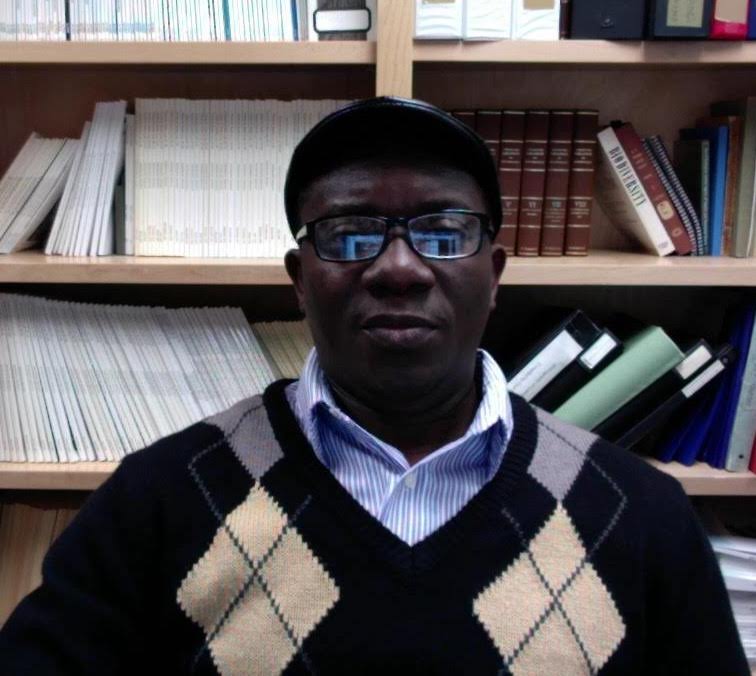
“My field of research is very difficult. It takes on average 7 years to train native English speakers (US) to become insect taxonomist. I lost nearly 3 years of my doctoral research because of lack of funding to conduct research on West African Coccinellidae. But thanks to the WARC travel grant in 2013/2014, I was able to start my field work in May 2014 – after being admitted into the doctoral program in May 2011. If I did not get this WARC grant, maybe I would not be here today – about to defend my dissertation* (after nearly 5 of intense research – combined with nonprofit leadership work). I wanted to get this work done back in 2005, but it had not been possible or started until Saturday, Sept. 14, 2013, 11:44 AM, time when I initially sent my WARA application.”
– Brad Hounkpati, WARC Travel Grantee 2013/14
*Dr. Hounkpati received his Phd in 2019
There are more than 6,000 species of lady beetles in the world, most having different natural histories and roles in their environments. The genus Rodolia is made up of many species of lady beetles that have been used to control pest insects around the world as far back as 1888. Crop losses to pests may represent the equivalent of food required to feed over 1 billion people every year. Pesticide use has grown over the past 20 years to 3.5 billion kg/year, amounting to a global cost of $45 billion. Integrated Pest Management (IPM) includes the use of a range of insect predators to control pests, including several species of lady beetles. IPM, if implemented worldwide, could give a mean yield increase across crops of 40.9%, combined with a decline in pesticide use to 30.7% compared with baseline. Knowing the characteristics of the different species available to fight the ever-evolving range of pests is invaluable. This is the subject of the doctoral thesis of Kwevitoukoui Hounkpati (Brad K. Hounkpati) of Togo and recipient of a 2013/14 WARC Travel Grant.
“Knowing that the vedalia lady beetle (Rodolia cardinalis) and Rodolia iceryae are already established as specialist predators of giant scale insects and that the vedalia lady beetle occurs in Africa, I wanted to see if Rodolia iceryae had been collected in the West African region”. Getting to West Africa was easier said than done, enrolled as a doctoral candidate in entomology at the University of Georgia, College of Agricultural and Environmental Sciences (CAES) Hounkpati encountered challenges in finding the funds to travel to West Africa and thus delaying his research for years. In 2013/14, Brad, an alumna of the Fulbright program, received a WARC Travel Grant and was able to travel to West Africa to see if Rodolia iceryae had been collected in West Africa.
“Thanks to the WARC Travel Grant, I was able to start my fieldwork in May 2014. I successfully defended my dissertation and have also published the work.”
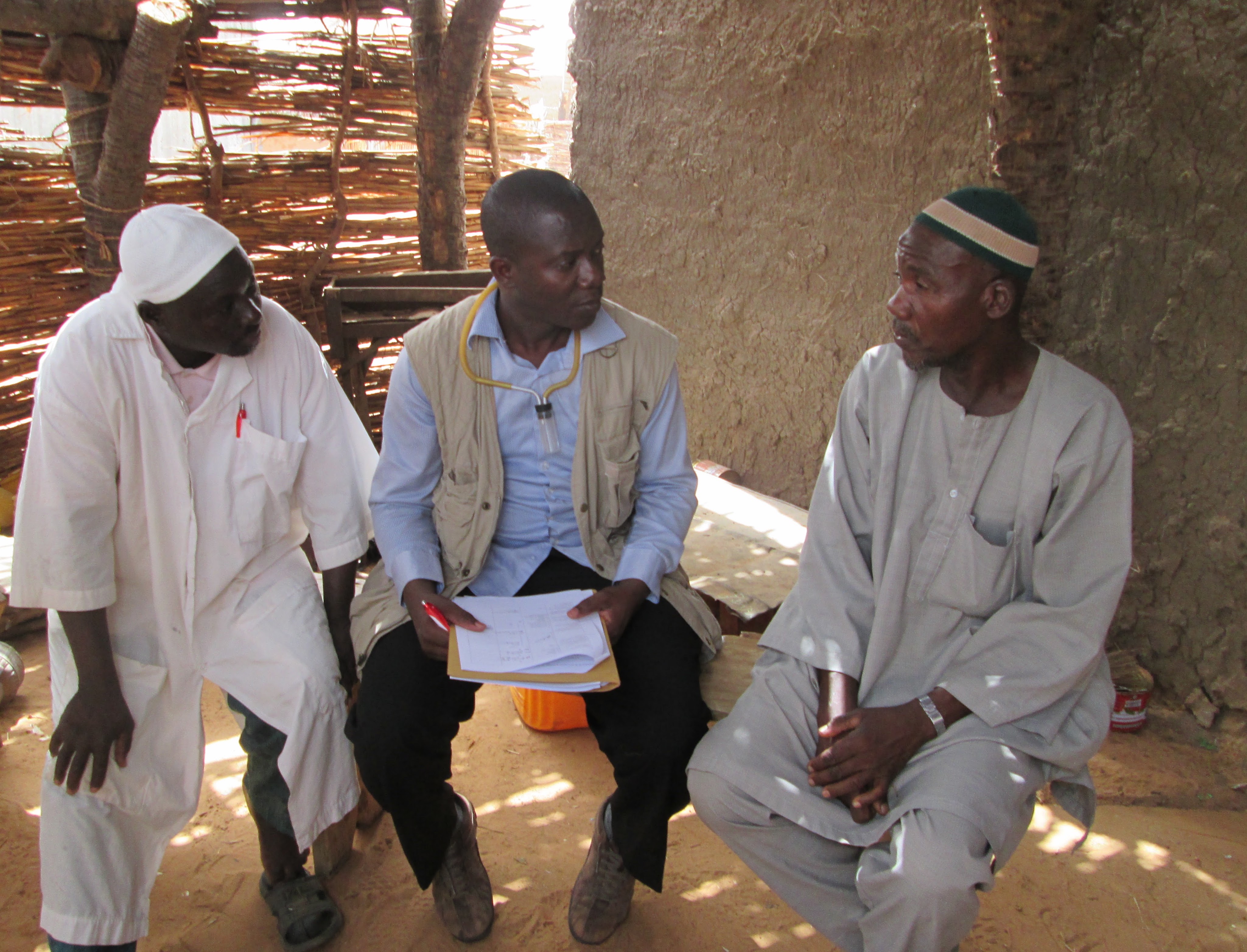
Survey with farmers in Sadori, Niger 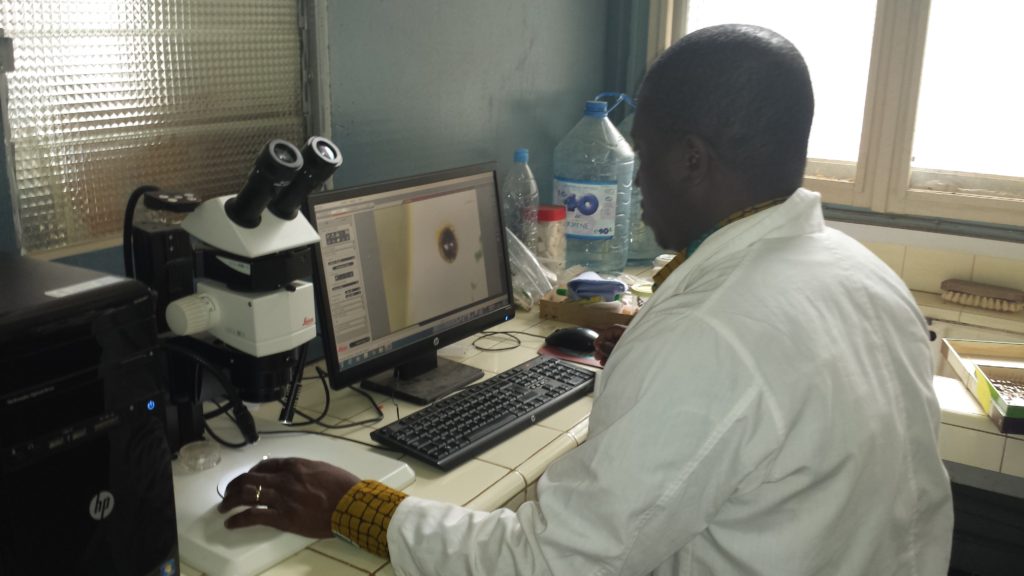
Museum work at IFAN, Senegal
He was, however, unable to find any specimens in West African museums. Through his research, Hounkpati found that the Victorian-age entomologist Oliver Erichson Janson originally described Rodolia iceryae in 1887. But in the century since he first described them, the original specimens had been lost. While Janson’s description was preserved in published literature, it was vague. The loss of the original physical specimen — called a “holotype” in taxonomy circles — put a hole in the scientific record. No one had the physical specimen or an original image to go with the description. There was no way to clarify ambiguity in Janson’s original text. Hounkpati, working along with Juanita A. Forrester, an entomologist at Chattahoochee Technical College, and Joseph V. McHugh, a UGA CAES entomology professor and curator of arthropods at the Georgia Museum of Natural History, helped to find museum specimens in the Musée Royal de l’Afrique Centrale (MRAC), Tervuren, Belgium that represented the same species described by Janson. Together they wrote a new, more detailed description of Rodolia iceryae that clarifies the ambiguity about the species’ identity.
Hounkpati’s work was published in the March 2019 edition of the taxonomic journal Zootaxa. As well as his research and teaching, Hounkpati has been a vocal advocate for WARA, and a keen contributor to WARA’s work, volunteering to review applications for WARA’s Ideas Matter Fellowship every year since receiving his fellowship. Brad Hounkpati has also found another way to give back, “My best way to thank WARA for the fellowship program is to help others.” Hounkpati founded two non-profits BSBIZTOGO, Inc. and Grain de Sel Togo, Inc., (GDS) are U.S. registered 501(c)(3) charities that are now affiliated to his new organization, Group BSBIZTOGO LLC, all committed to helping students in public universities in Burkina Faso, France, and Togo. He also created a new company BSBIZTOGO, Inc. SARL in Togo, providing support to immigrants to the US and employing two full-time employees and an army of volunteers. Early this year, he launched a new project “Je rembourse mon école” (I’m reimbursing my school), providing furniture and educational support to secondary schools in Togo. This project is set to challenge and invite all educated people (alumni) to support education worldwide. As of January 2021, GDS has offered scholarships to 41 students in public universities in Kara and Lome (Togo), Burkina Faso, and Dunkerque, Angers, Bordeaux (France). Grantees are selected on a merit-competitive basis for one full academic year. Support includes tuition fees, monthly stipends, training and workshops, community service and outreach programs.
Hounkpati commented, “The fellowship enabled me to conduct research in Africa, Europe and the US. The Travel Grant was a life-changing program for me. My PhD research projects would have never started without the support from the WARC Travel Grant, which was the first scholarship that opened doors to other scholarships that have profoundly changed my doctoral research course. Thank you.”
1Rodolia iceryae is now placed in the genus Novius as Novius iceryae
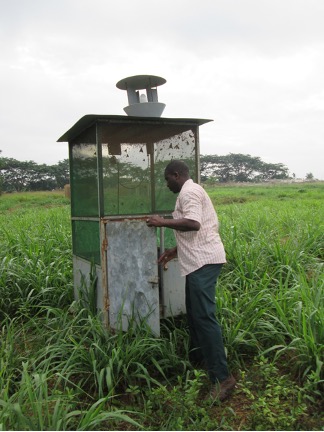
IITA Benin, checking insect light trap 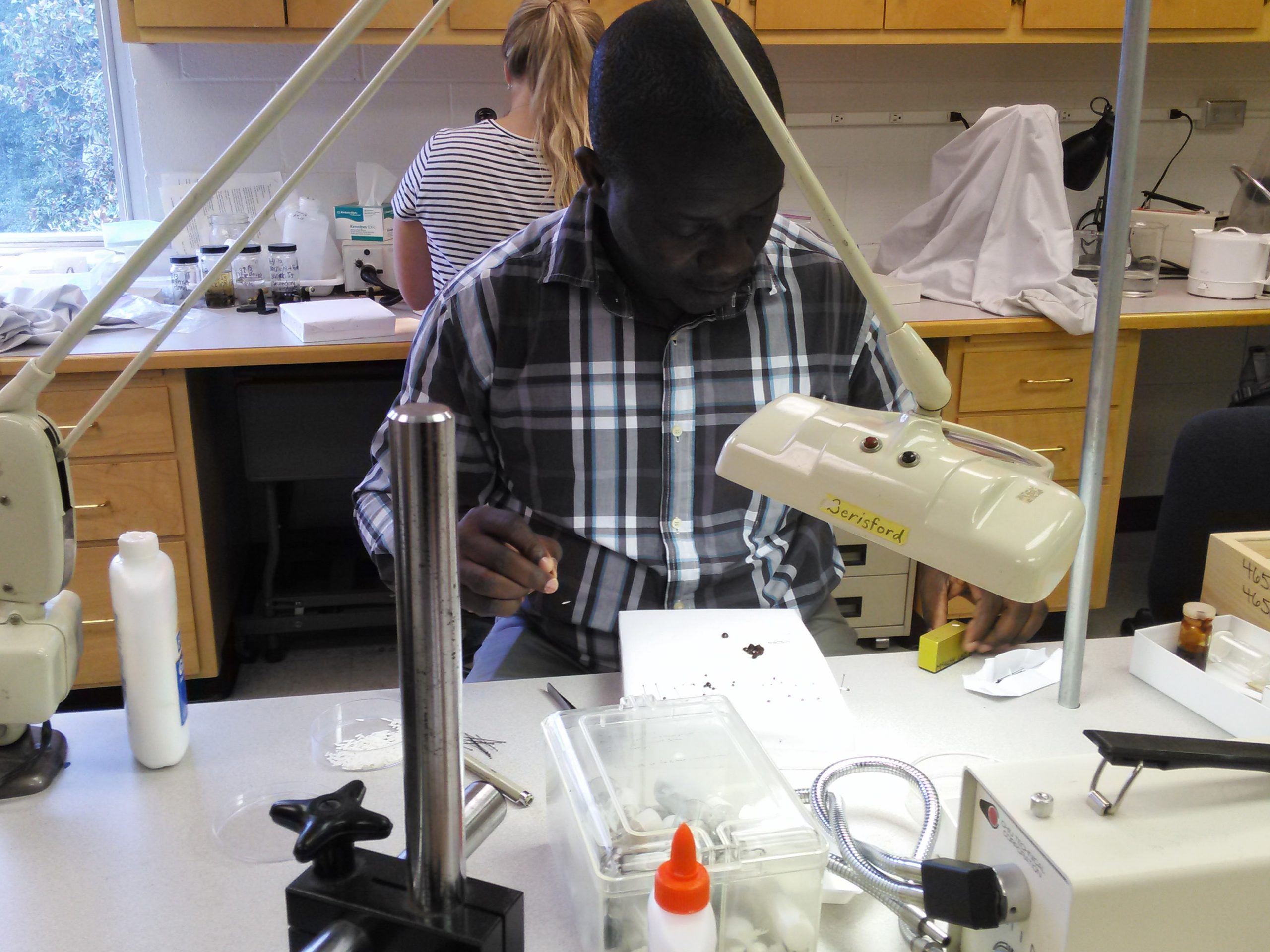
Dr. Hounkpati in his lab 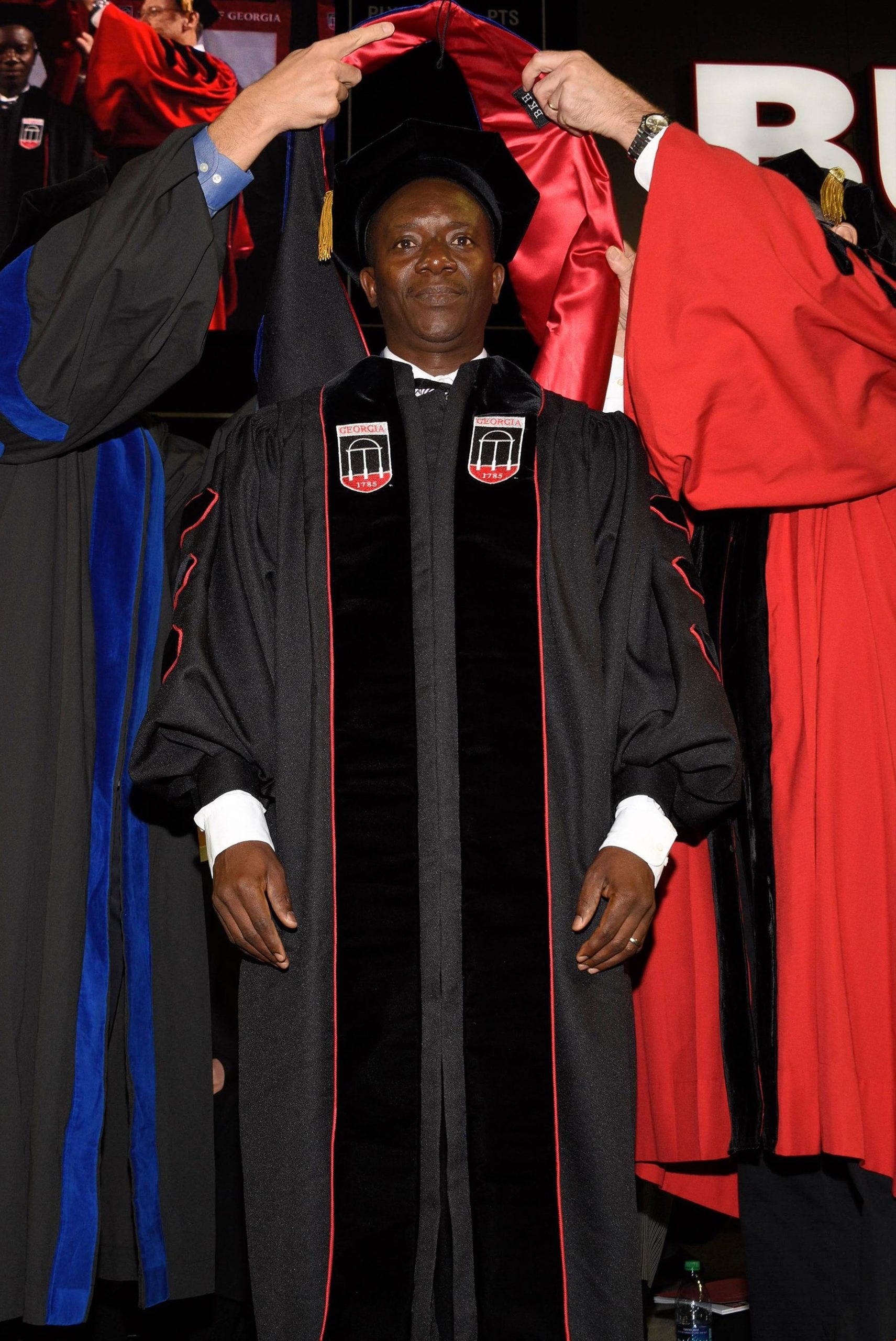

5 thoughts on “Focus on Fellows – Dr. Brad Hounkpati”
Dr. Musa Oyewole SalawuPosted on 5:32 am - Jun 21, 2021
Wonderful piece and an inspiring story for all African children.
There’s a lot to learn from the story of my dear brother, Brad. Mostly of all is to remain focussed and keep striving toward achieving your goals. It surely will be achieved in the end.
To Dr. Hounkpati, your achievements have just begun.
Edward Ntim GasuPosted on 8:35 am - Jun 21, 2021
Congratulations! This is very inspiring!
I hope will get there soon!
Dr. Rosina KyerematenPosted on 10:12 am - Jun 21, 2021
Congratulations Brad. Extremely proud of you.
Brad HounkpatiPosted on 4:37 am - Jun 22, 2021
Dear WARA/WARC Staff,
I read this article over and over.
It seems like WARC travel grant was created just for me.
Back in Africa, it took 6 years to get my admission to Graduate School in the US. I completed my Master in Agronomy in 2005, and wanted to continue with doctoral studies in insect taxonomy but did not find any college or school in Africa to do so. Even though it was unthinkable for me to believe that one day I would complete my doctoral studies, I remained confident and hopeful …
This patience has paid off thanks to your support.
Thank you!
IHOU Atsu frank yayraPosted on 3:04 pm - Jun 30, 2021
Bravo Docteur Brad, nous somme derrière vous, en tout cas je suis derrière vous, faire comme vous si j’échoue, réussir alors c’est faire mieux que vous. merci pour le courage et la détermination que vous partagiez avec nous.